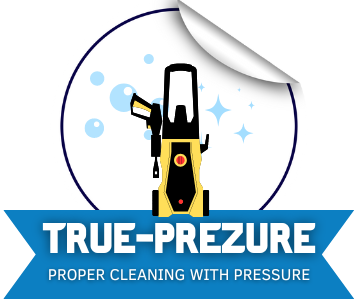Are you in the market for a pressure washer but feeling bewildered by all the technical jargon?
Don’t worry, we’ve got you covered! what is gpm in pressure washer with full guide!
One term that often causes confusion is GPM. What does it mean and why is it important when choosing a pressure washer?
In this full guide, we’ll break down everything you need to know about GPM in pressure washers so that you can make an informed decision and get your cleaning jobs done efficiently and effectively. So let’s dive into the world of GPM!
What is GPM in a Pressure Washer?
The acronym “GPM” stands for gallons per minute. it measures the rate at which liquid moves from one point to another.
If your spout has GPM flow control, then it will regulate fluid movement to reach the desired setting—be it low, medium, or high speed.
However, GPM does not indicate how much work a device can perform; that falls under the purview of PSI.
When shopping for pressure washers, take care to compare both GPM and PSI values. Certain applications demand very different pressures than others!
For example, if you plan to clean concrete driveways or remove tough grime from truck beds, then opt for a power washer boasting at least 3000 PSI.
But for typical residential chores like washing outdoor furniture, power equipment, or windows, look for machines offering only about 1800-2000 PSI.
How to Calculate Gpm?
For accurate calculations, measuring the water volume passing through your pressure washer each minute is critical.
| Step | Description |
|---|---|
| Step 1 | Measure the water volume passing through your pressure washer each minute for accurate calculations. |
| Step 2 | Obtain the total gallon per minute (GPM) by measuring your washer’s output at maximum pressure using a timer and a fixed container. |
| Step 3 | Fill the tank and slowly open the valve, allowing the air to escape. |
| Step 4 | Hold the nozzle against the edge of the tank and start timing for sixty seconds. |
| Step 5 | Stop timing and check the amount of liquid remaining in the tank. |
| Step 6 | Subtract the remaining liquid quantity from the initial total to determine the GPM reading. |
| Step 7 | Keep in mind that precise GPM figures may vary depending on specific cleaning requirements. |
| Step 8 | Pressure washing contractors often prefer units with adjustable dials for flexibility in different projects. |
| Step 9 | Understanding GPM ensures efficient equipment operation and quality work without wasting resources. |
Why is GPM Important?
When we consider buying a new pressure washer, it’s important to know the correct Gallon Per Minute (GPM) setting needed for each job type
right? here we go
Firstly, let’s define what GPM is: it describes the total volume of liquid expelled from the pressure washer within a single sixty-second interval. For instance, a machine producing 5 gallons per minute would discharge five gallons worth of liquid before your timer hit double zeroes after one minute.
As you might imagine, selecting an appropriate GPM will affect how efficiently the water emanates from the pressure washer head. Higher settings could potentially lead to excessive runoff and splashback, whereas settings too weak wouldn’t deliver strong enough sprays.
Fortunately, finding a happy median shouldn’t prove difficult since most consumers find a 2,500-3,000 range sufficient for their pressure washing applications.
Let’s dive deeper now: there are two primary ways to determine the right GPM for each application.
One way involves evaluating the targeted area’s dimensions and the intended duration length of spray time. In order words, if the zone undergoing pressure washing isn’t vast or demands immediate attention, reduce the GPM to save resources.
On the opposite end of the spectrum, increasing GPM helps speedily wipe away gunky residue when working on heftier-sized spaces. With these calculations in mind, you are armed with all the necessary knowledge to select the perfect GPM for almost any project.
How to Use a Pressure Washer Effectively?
There are various kinds of pressure washers available in the market, including electric, gas, hot water, and commercial options.
Electric ones tend to be lighter, easier to handle and are perfect for minor household chores such as washing vehicles or patio furniture. On the other hand, gas-powered pressure washers are capable of handling bigger tasks like commercial cleaning assignments or paint removal with pressures upwards of 4000 PSI. if you going to wash your car electric can do your job easily with proper car wash soap, even if you have a black car it can be done without water spots.
However, since these types need refueling and produce fumes, they’re generally best reserved for outdoors. Hot water pressure washers supply temperature-controlled streams to help loosen filth but may cost extra given their additional components.
and, commercial-grade power washers possess high-performance characteristics and durable exteriors meant for extended usage;
They usually also bring steeper price tags along with increased complexity. When shopping for a pressure washer, take into account your intended tasks before settling on the most effective choice for you.
| Type | PSI | GPM | Cleaning Units | Application |
|---|---|---|---|---|
| Smaller Jobs | 1400-1750 | 1.4-1.6 | 1960-2800 | Car washing and smaller projects |
| Medium Jobs | 1800-2200 | 2 | 3600-4400 | Cleaning decks, siding, and residential jobs |
| Large Jobs | 2300-2500 | 2.2-2.3 | 5060-7130 | Driveways and larger residential jobs |
| Commercial Medium | 2600-3100 | 2.5 | 6500-7750 | Prepping wood and cleaning concrete |
| Commercial Large | 3200-4000 | 3-4 | 9600-14000 | Stripping paint and cleaning larger jobs |
What are The Different Types of Pressure Washers?
There are various kinds of pressure washers available in the market, including electric, gas, hot water, and commercial options.
Electric ones tend to be lighter, easier to handle and are perfect for minor household chores such as washing vehicles or patio furniture. check out our best company comprise of Ryobi Vs Greenworks Pressure Washer.
On the other hand, gas-powered pressure washers are capable of handling bigger tasks like commercial cleaning assignments or paint removal with pressures upwards of 4000 PSI.
However, since these types need refueling and produce fumes, they’re generally best reserved for outdoors. Hot water pressure washers supply temperature-controlled streams to help loosen filth but may cost extra given their additional components.
Finally, commercial-grade power washers possess high-performance characteristics and durable exteriors meant for extended usage;
However, they usually also bring steeper price tags along with increased complexity. When shopping for a pressure washer, take into account your intended tasks before settling on the most effective choice for you.
FAQ
What is a good GPM on a pressure washer?
Understanding the right GPM for your pressure washer needs is essential, as it determines the amount of water discharged within a minute. Residential models typically feature a flow between 1.5 and 2.5 gallons
Do you need high GPM for pressure washer?
Choosing the right GPM (gallons per minute) for a pressure washer largely depends on how often you plan on using it and what type of projects you have in mind. Pressure washers with higher GPM ratings can handle bigger tasks efficiently but may result in higher water usage. On the other hand, smaller GPM ratings work well for lighter duties or intermittent use cases without consuming a lot of water.
What is the average GPM for a pressure washer?
there isn’t a fixed number when it comes to an average gallon per minute (GPM) for a pressure washer. It mostly depends on factors like the brand, purpose, or even the user’s preference. Typical household units tend to have GPM rates ranging anywhere from approximately 1.2 upwards towards 2.5.
Conclusion
Selecting the right GPM for your pressure washer ensures efficient performance. GPM, or gallons per minute, measures the water volume processed by the machine each minute. Pay close attention to the nozzle size and PSI when determining GPM. Higher values indicate faster cleaning of broader surfaces but consider lower-volume tasks too. Some jobs don’t require high volumes, making a balanced approach essential for effective use.

